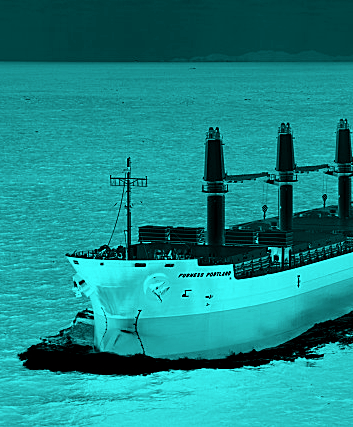IMO wants ship emissions switch
 Australia’s shipping industry could soon be required to halve its toxic emissions.
Australia’s shipping industry could soon be required to halve its toxic emissions.
The United Nations' International Maritime Organisation (IMO) wants to reduce maritime sulphur emissions by 3 per cent over the next two years, and to cut greenhouse gas (GHG) emissions in half by 2050.
The approved amount of sulphur contained in ship fuel oil will drop from 3.5 per cent to 0.5 per cent in 2020.
As an IMO member state, Australia's $9 billion shipping industry must comply with the new standards.
The IMO says it will “significantly reduce the amount of sulphur oxide emanating from ships and should have major health and environmental benefits for the world, particularly for populations living close to ports and coasts”.
The IMO is also making moves to reduce greenhouse gas (GHG) emissions.
“IMO remains committed to reducing GHG emissions from international shipping and, as a matter of urgency, aims to phase them out as soon as possible in this century,” it said in a statement.
The authority’s initial reduction strategy aims to reduce GHG emissions by 50 per cent by 2050 compared to 2008 levels.
Studies have shown sulphur oxide emissions can have a serious impact on public health.
A recent Finnish study estimated that air pollution from ships — if sulphur emissions are not cut — will lead to over 570,000 deaths worldwide between 2020 and 2025.
In East Asia, research shows sulphur oxide and other harmful shipping emissions are responsible for 24,000 premature deaths each year.
Other studies estimate that if low-sulphur fuels became widespread in shipping, it would prevent approximately 33,500 premature deaths each year.
Sulphur oxide emissions also have a devastating effect on the environment, the IMO says:
“In the atmosphere, sulphur oxides can lead to acid rain, which can harm crops, forests and aquatic species, and contributes to the acidification of the oceans.”
Shipping lobby Maritime Industry Australia says new emission limits will lead to extra costs for vessel owners and consumers.
“Eventually this is a cost on the consumer. The cost of sea trade ends up flowing down to the cost of products in Australia and the world,” deputy CEO Angela Gillham has told reporters.
The Australian shipping industry will have to switch to more expensive fuels such as marine gas oil or diesel oil.
They also have the costly option to install scrubbers to filter ship exhaust fumes.
“The industry needs to, where possible, try and anticipate what's coming next. At some point down the track, whether it's a decade or shorter, the industry will be required to address greenhouse gas emissions as well,” Ms Gillham said.
“It's time that a huge focus is put on alternative fuels.”
Local gas industry advocates say ships should switch to LNG.







 Print
Print